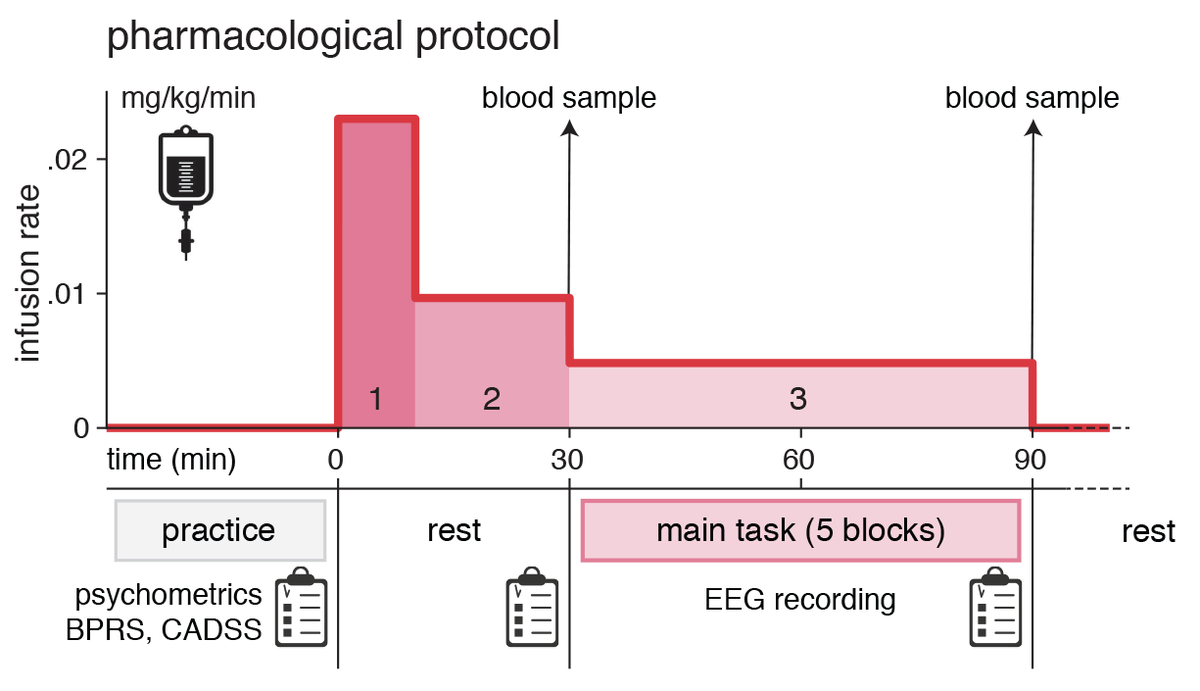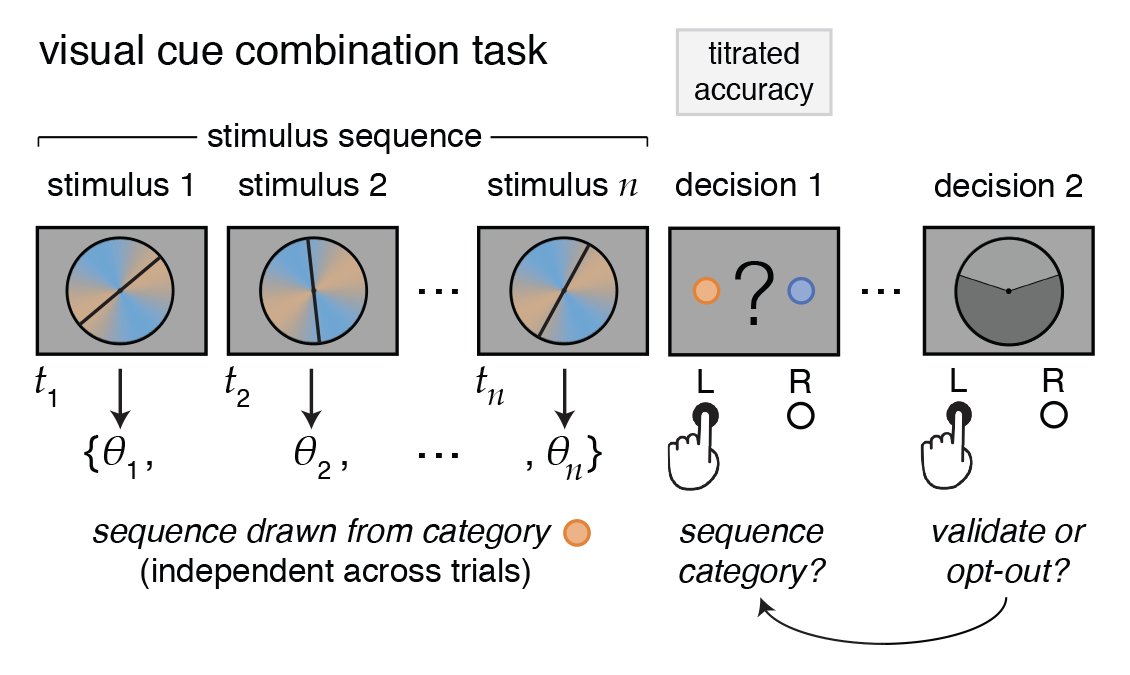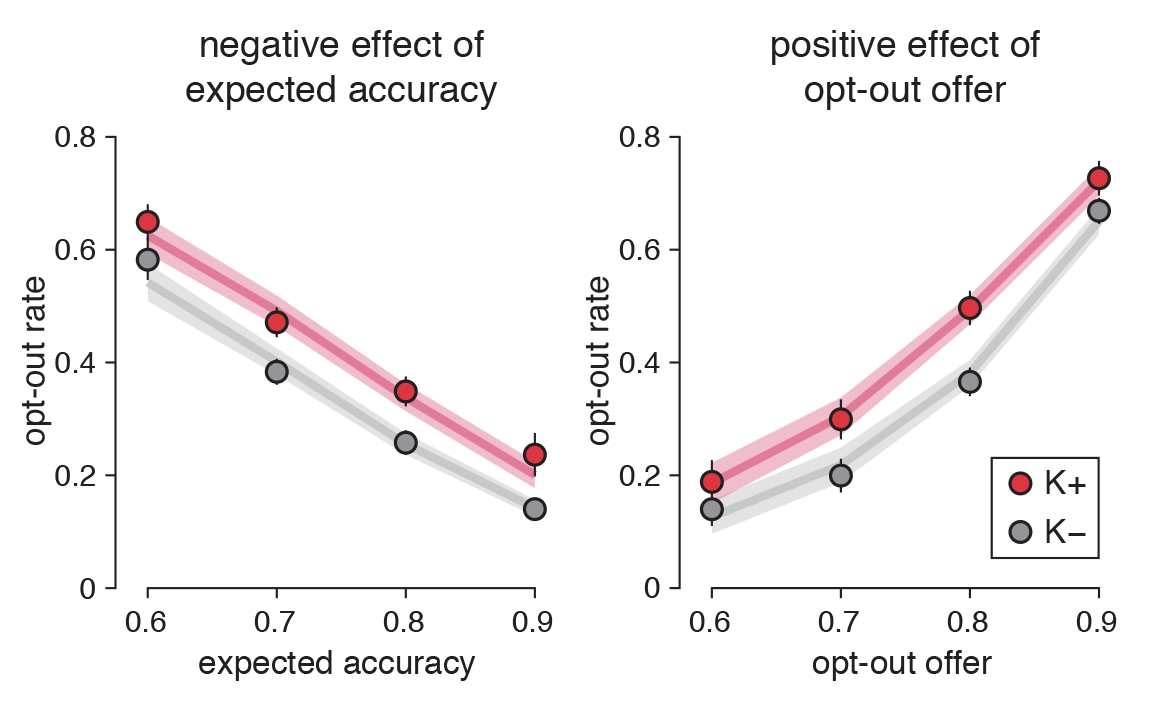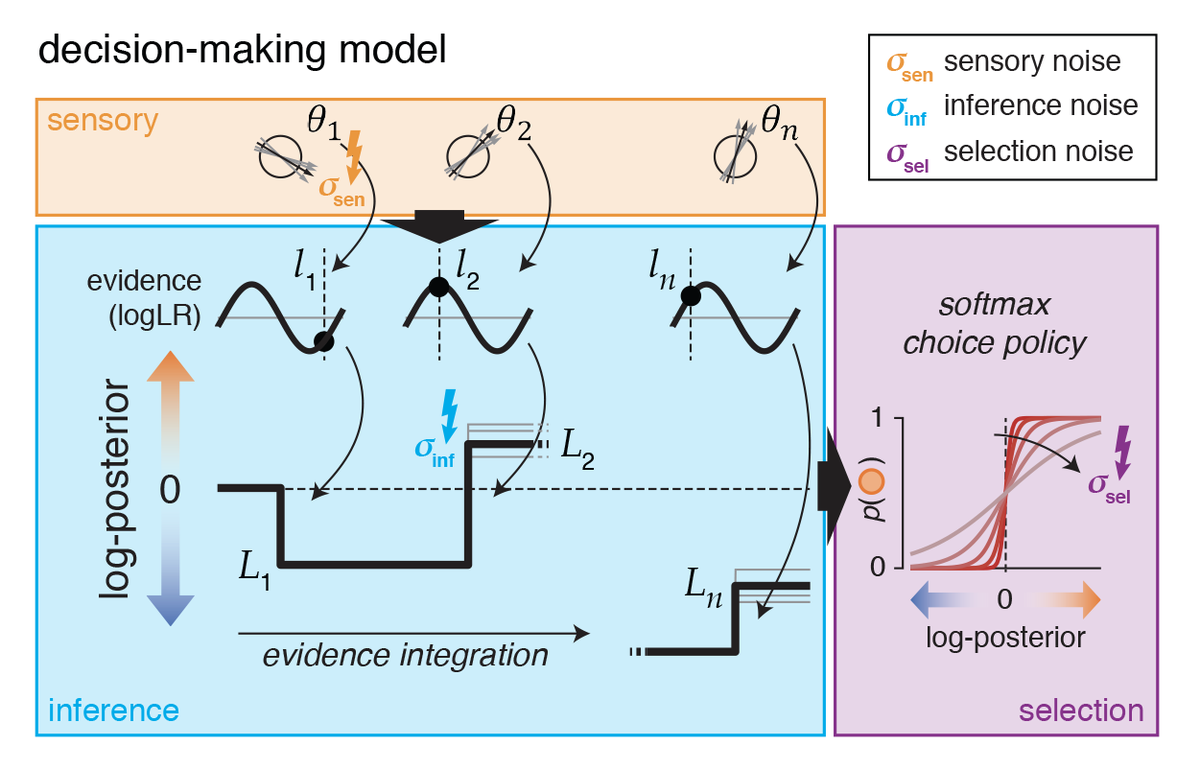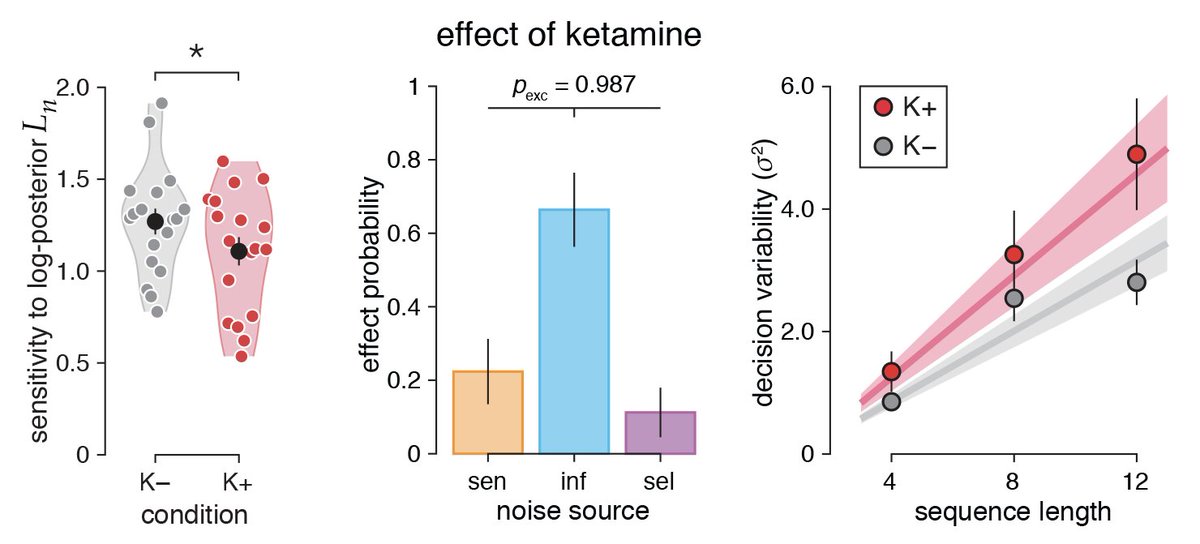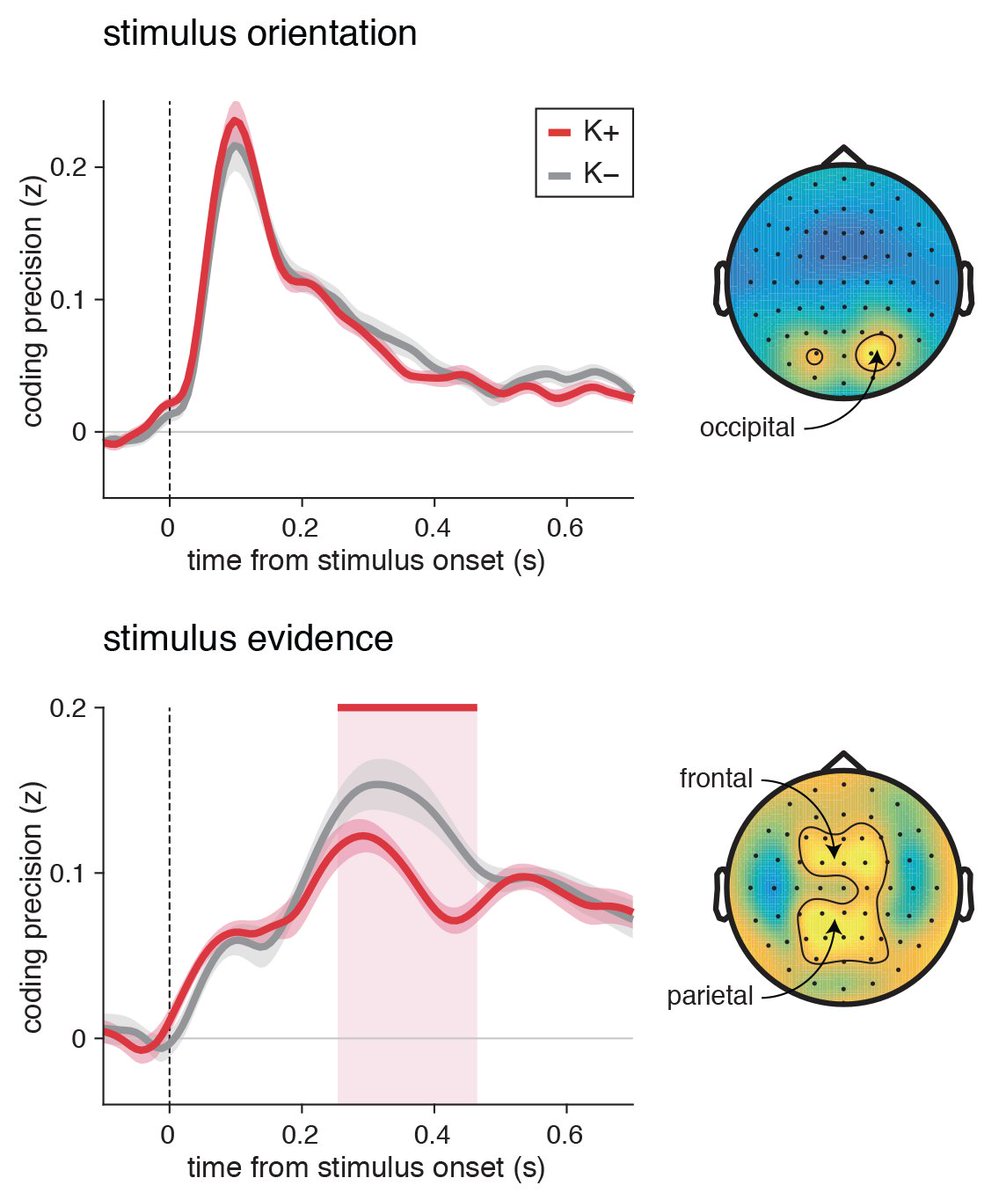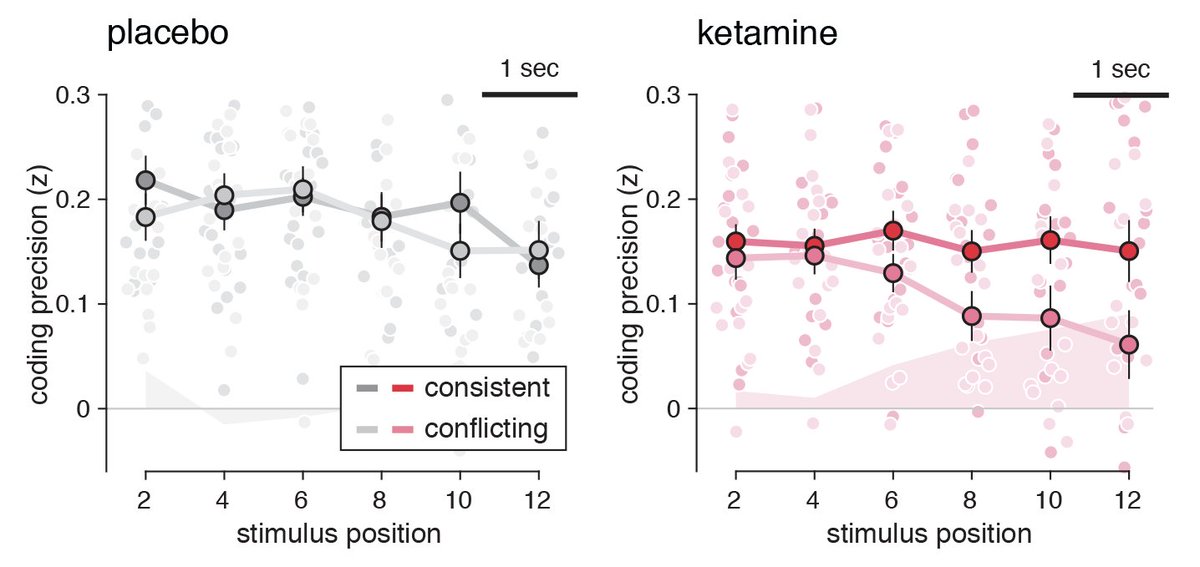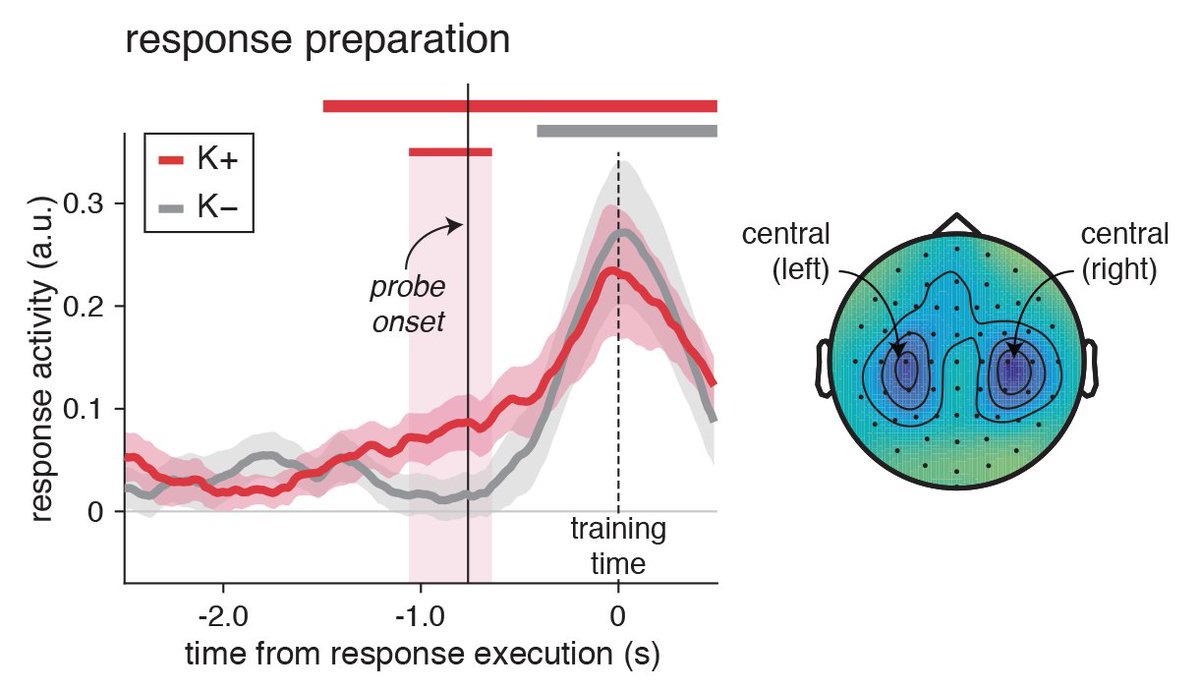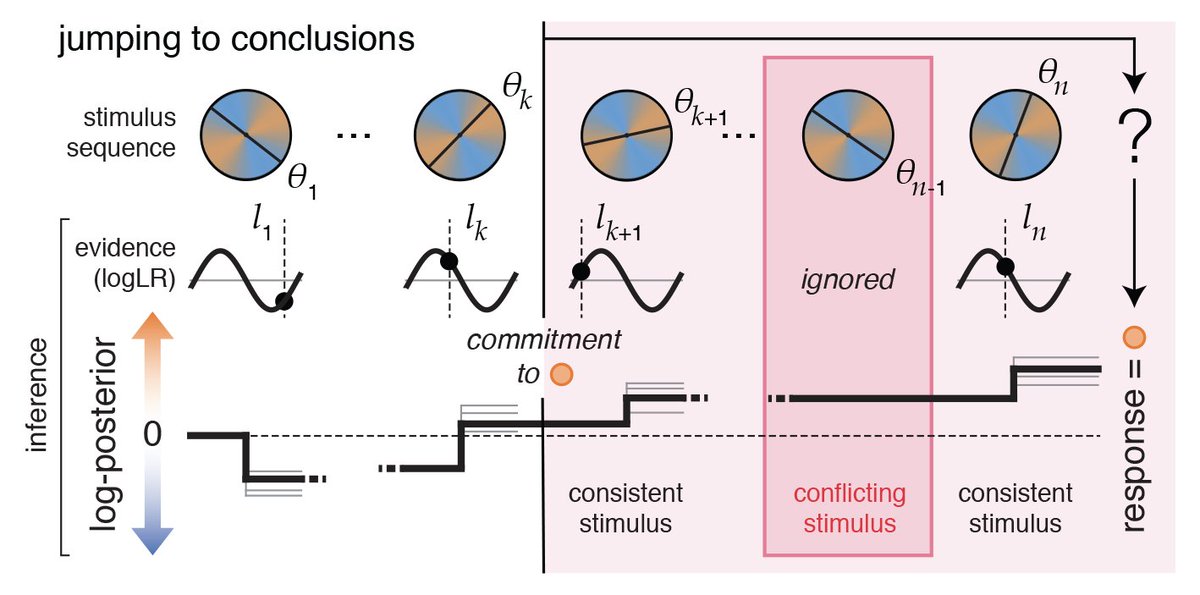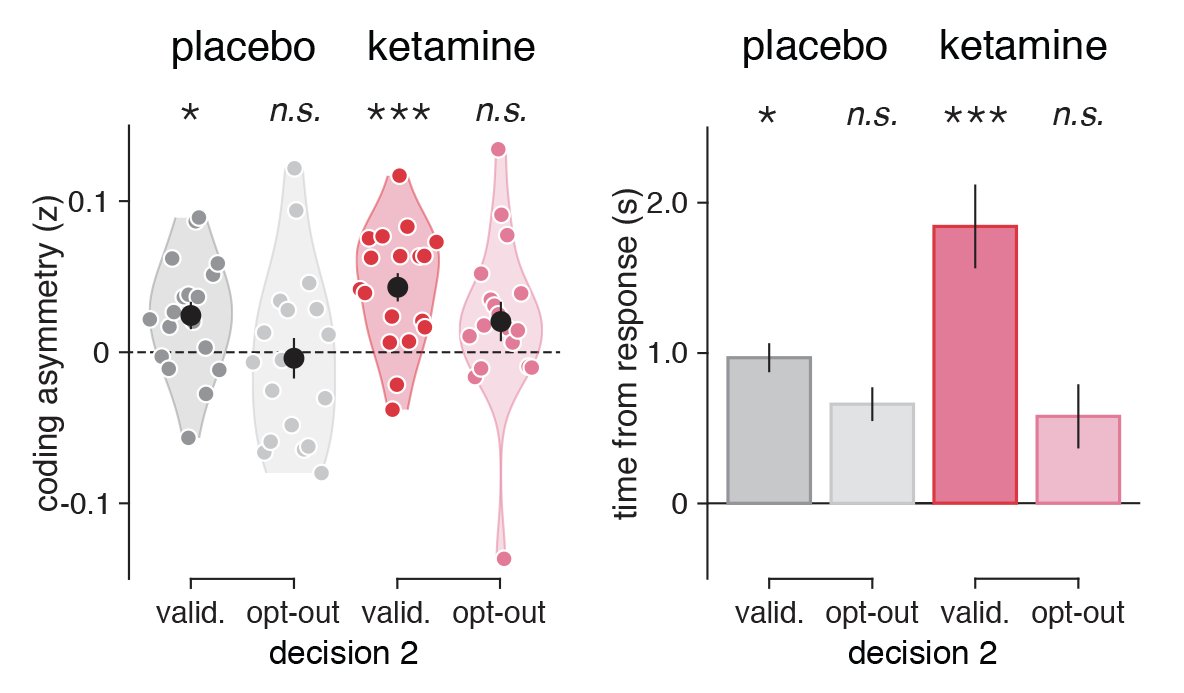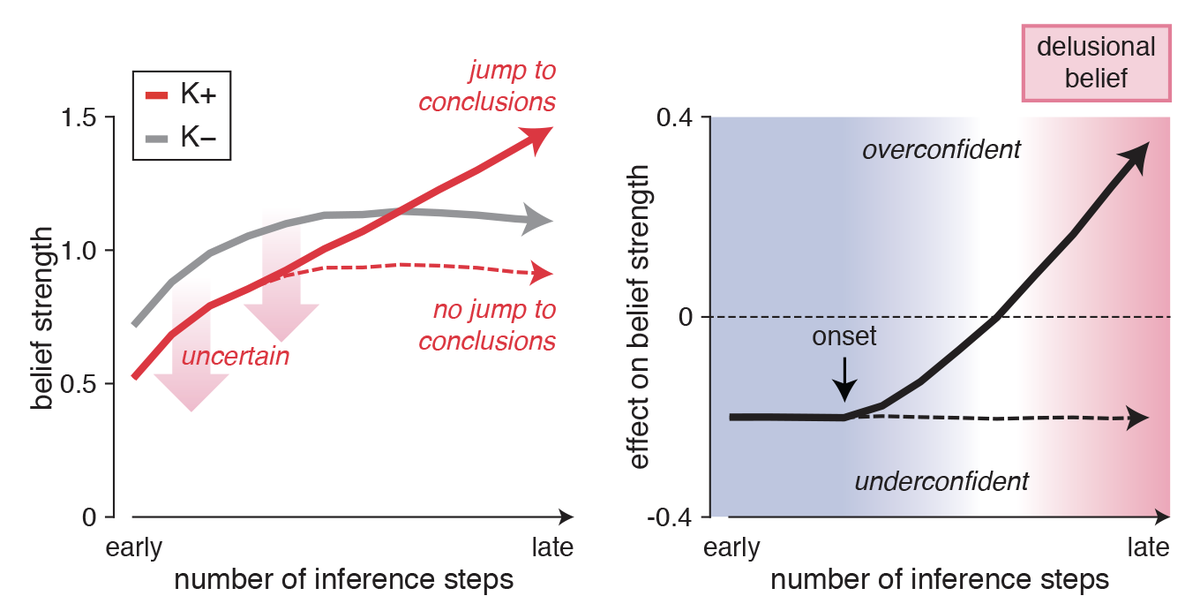Jumping to conclusions to escape uncertainty! New @biorxiv_neursci preprint from the lab on the cognitive effects of NMDA receptor hypofunction on human decision-making under uncertainty. A quick summary (so to speak):  https://abs.twimg.com/emoji/v2/... draggable="false" alt="👇" title="Rückhand Zeigefinger nach unten" aria-label="Emoji: Rückhand Zeigefinger nach unten"> (1/18) https://twitter.com/biorxiv_neursci/status/1273674725852676096">https://twitter.com/biorxiv_n...
https://abs.twimg.com/emoji/v2/... draggable="false" alt="👇" title="Rückhand Zeigefinger nach unten" aria-label="Emoji: Rückhand Zeigefinger nach unten"> (1/18) https://twitter.com/biorxiv_neursci/status/1273674725852676096">https://twitter.com/biorxiv_n...
Simulations of neural networks have identified NMDA receptors as necessary for the integration of noisy input through balanced excitation/inhibition. Also, chronic NMDA receptor hypofunction in schizophrenia has been implicated in hallucinations and jumping to conclusions. (2/18)
Lots of great experimental work by @PhilCorlett1 @SeriesPeggy @dr_rick_adams @MHASC1 @PaulPcf22 and many others. But how does NMDA receptor hypofunction impair decision-making in a way that produces these specific symptoms? (3/18)
To test this, we administered ketamine (a non-competitive NMDA receptor antagonist) intravenously to healthy volunteers in a placebo-controlled randomized crossover study. Meaning that all subjects received ketamine *and* placebo, in different sessions. (4/18)
During the injection, subjects performed a challenging decision-making task in which they categorized sequences of visual stimuli. After each decision, subjects could either validate or opt out of their decision - something we used to measure confidence. (5/18)
Why did we measure confidence? Because jumping to conclusions is typically seen as a signature of overconfidence, in patients but also in non-clinical subjects. We wanted to see whether ketamine would produce the same pattern of effects. (6/18)
To compare confidence between ketamine and placebo, we titrated the difficulty of the task to
reach the same accuracy across conditions. But unlike the overconfidence reported in patients, ketamine decreased confidence: subjects opted out more, not less, under ketamine. (7/18)
reach the same accuracy across conditions. But unlike the overconfidence reported in patients, ketamine decreased confidence: subjects opted out more, not less, under ketamine. (7/18)
This elevated uncertainty is characteristic of early stages of psychosis, a temporary feeling of strangeness difficult to study in patients. But ketamine did not only decrease confidence, it also impaired cognitive inference - the sequential integration of stimuli. (8/18)
Using the modeling framework previously developed with @jdrugowitsch and @KoechlinE for decomposing decision errors ( https://doi.org/10.1016/j.neuron.2016.11.005),">https://doi.org/10.1016/j... we found that ketamine increased inference errors but did not affect sensory noise nor choice stochasticity. (9/18)
Multivariate pattern analyses of EEG activity confirmed these effects of ketamine, by showing intact visual processing of the stimuli, followed by degraded processing of the evidence each of them provides for the upcoming decision. (10/18)
That’s not all. Ketamine also produced two clear signs of jumping to conclusions: 1) a dampened processing of the evidence that runs against the upcoming decision, and 2) a premature preparation of the motor command associated with the upcoming decision. (11/18)
This is surprising, because these signs of jumping to conclusions are observed in a condition where subjects are not overconfident, but highly uncertain - quite the opposite! So why do subjects jump to conclusions under ketamine if they’re so uncertain? (12/18)
Through simulations, we propose that jumping to conclusions reflects an urge to escape the high uncertainty triggered by ketamine by committing to a decision early. In other words, a compensatory mechanism against uncertainty, rather than a correlate of overconfidence. (13/18)
Occasional jumping to conclusions is sufficient to reproduce the effects of ketamine, but also predicts that the signs of jumping to conclusions should be stronger in trials where subjects validate their decision instead of opting out - something validated by our data. (14/18)
Describing jumping to conclusions as an urge to escape uncertainty explains the transition from high uncertainty at early stages of psychosis to overconfidence at later stages. In this view, delusions arise as an over-compensatory effect of unusually high uncertainty. (15/18)
This is not purely a rhetorical point: antipsychotic treatments tend to decrease confidence, something which may increase this over-compensatory effect and paradoxically favor the emergence of delusions. Lots more work to do to test this hypothesis, of course. (16/18)
The same type of cognitive mechanism may also forge unusually strong beliefs, and a hardening of attitudes, when confronted with uncertainty in everyday life. Find out more about the study in the preprint if you’re interested: https://doi.org/10.1101/2020.06.17.156539">https://doi.org/10.1101/2... (17/18)
Collaborative work with Alexandre Salvador, @Luc_H_Arnal, Fabien Vinckier, @PhilippeDOMENE2 and Raphael Gaillard, with support from @Inserm @ERC_Research @AgenceRecherche @FRM_officiel @Cognition_ENS. (18/18)

 Read on Twitter
Read on Twitter